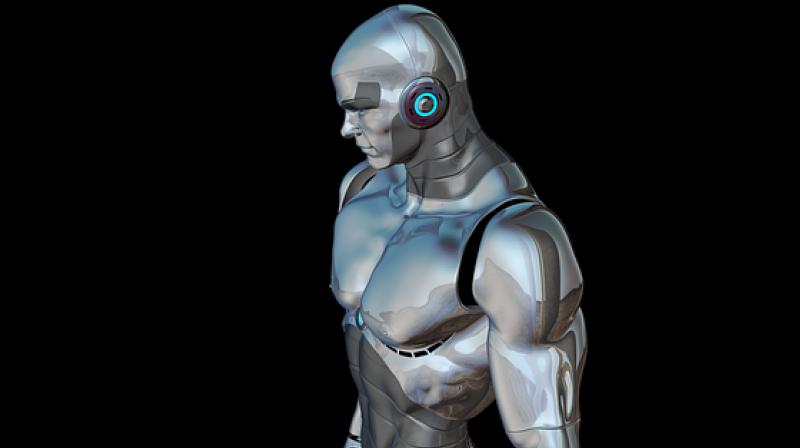Artificial 'origami' muscles allow soft robots to lift 1000 times their weight
The new origami-inspired muscles are both soft and strong, and can be made for less than $1.

US scientists have created affordable artificial muscles that add strength to soft robots, allowing them to lift objects that are up to 1,000 times their own weight.
The new origami-inspired muscles are both soft and strong, and can be made for less than $1. They can perform a greater variety of tasks and are safer than other models, according to researchers at Massachusetts Institute of Technology (MIT) and Harvard University.
"It is like giving these robots superpowers," said Daniela Rus, from the MIT, in the study published in the journal PNAS.
Each artificial muscle consists of an inner "skeleton" that can be made of various materials surrounded by air or fluid and sealed inside a plastic or textile bag that serves as the "skin."
A vacuum applied to the inside of the bag initiates the muscle's movement by causing the skin to collapse onto the skeleton, creating tension that drives the motion.
No other power source or human input is required to direct the muscle's movement, it is determined entirely by the shape and composition of the skeleton.
The researchers constructed dozens of muscles using materials ranging from metal springs to packing foam to sheets of plastic.
They experimented with different skeleton shapes to create muscles that can contract down to 10 per cent of their original size, lift a delicate flower off the ground, and twist into a coil, all simply by sucking the air out of them.
The muscles, also known as actuators, can generate about six times more force per unit area than mammalian skeletal muscle.
They are also incredibly lightweight, a 2.6-gram muscle can lift a three-kilogramme object, which is the equivalent of a mallard duck lifting a car.
"Vacuum-based muscles have a lower risk of rupture, failure, and damage, and they do not expand when they are operating, so you can integrate them into closer-fitting robots on the human body," said Daniel Vogt, from the Harvard University.

